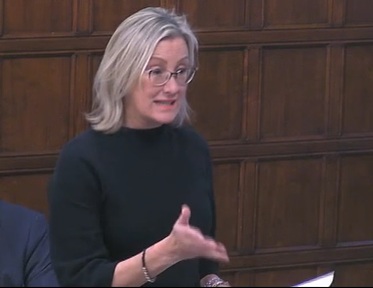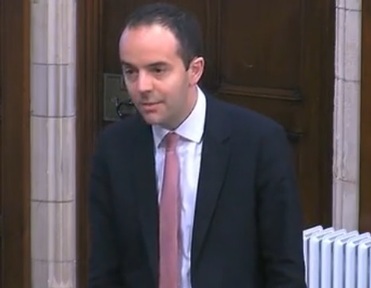Care minister told to 'stop allowing private companies to profiteer'
Care minister Caroline Dinenage has been told in a Westminster debate to “stop allowing private companies to profiteer, whilst those who rely on social care and the workers who provide it pay the price”.

The message came from Labour’s newly-elected North Ealing MP James Murray who led a debate in Westminster Hall today (5 February) on user-led social care.
Mr Murray appealed to the care minister to deliver “regulation to support co-operative models over full-profit ones.”
James Murray said: “Chronic underfunding alongside a shift to private providers has hit not just those who need social care but also those working in the sector.
"Under a co-operative approach to social care, care services should be not for profit. We will never be the caring society we should be, when services supposed to help the vulnerable in our society are driven by profit”.
In a plea to the care minister to put care users, their families and care workers ”at the heart of decisions" about how social care is provided, he said care workers “should not be forced onto lower wages and insecure contracts”.
He urged the minister to ensure local authorities are given “a duty” to promote co-operative organisations to deliver care in their area and referred to Wales’ example in the Social Services and Wellbeing Wales Act 2014.
After paying tribute to user-led organisations around the country, Caroline Dinenage said: “There’s been a much more open and competitive market in adult social care.
"Increasingly private providers and the voluntary sector organisations have been responsible for providing services that lead to an increased choice and better outcomes for individuals.
"That results in improving quality; 84 per cent of all registered adult social care locations, for example, were rated ‘good’ or ‘outstanding’ by the Care Quality Commission… in January 2020.

“High quality personalised care and support can only be achieved where there is a vibrant and responsive market. User-led, strength-based approaches will help to deliver our ambitions to achieve better outcomes for all.”
Ealing has a care co-operative made up of care workers and those receiving care. The MP for Ealing North called on the care minister to ensure ‘a right to first refusal’ for workers to step in and take over failing private organisations who provide social care.
When private organisations face financial difficulties, he highlighted how “they are often sold on to another private organisation or simply closed down.
"Where private organisations are failing, employees should have an opportunity to take on all or part of that organisation.”
Protection against asset-stripping
Mr Murray also called for “protection against asset stripping”. Where social care services are mutualised, he told the minister, they must be “asset-locked” to ensure all types of assets are locked within the organisation.
Currently, all non-state providers are categorised as ‘independent’ which he said “undermines the ability of care users and their families to distinguish between for profit and non-profit providers”.
Caroline Dinenage was also told the Care Quality Commission must “modify” its inspection regime to ensure non-profit co-operative models can "thrive". In response, the care minister said: “Clearly, there will be local areas where co-operatives can play a really important role in the provision of care services.”
Latest News
 29-Jul-24
Dementia Bus gives carehome.co.uk staff insight into life with dementia
29-Jul-24
Dementia Bus gives carehome.co.uk staff insight into life with dementia
 01-Mar-24
Find out the top care homes in 2024
01-Mar-24
Find out the top care homes in 2024
 21-Mar-23
UK's top care homes in 2023 revealed
21-Mar-23
UK's top care homes in 2023 revealed
 03-Jan-23
carehome.co.uk launches free care helpline
03-Jan-23
carehome.co.uk launches free care helpline
 13-Dec-22
5 mins with Emily Whitehurst, chief operating officer for Constantia Healthcare
13-Dec-22
5 mins with Emily Whitehurst, chief operating officer for Constantia Healthcare